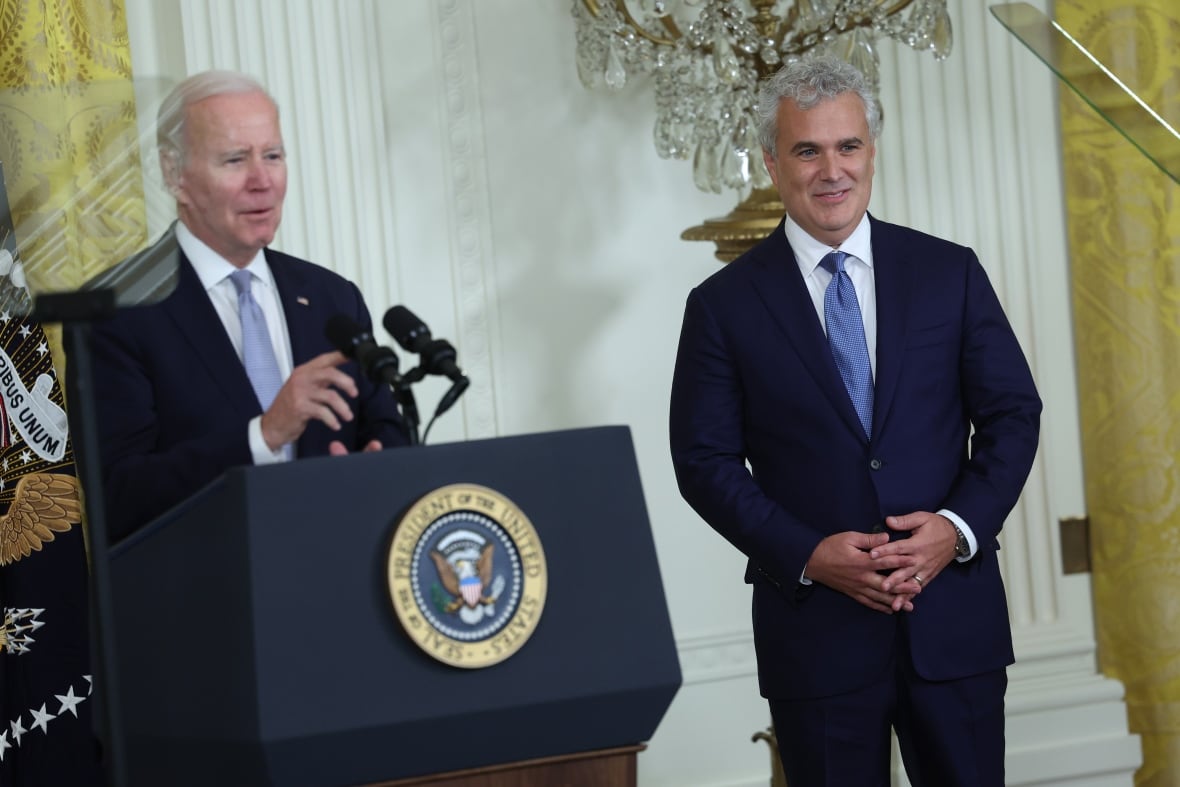Remember Cambridge Analytica? What to know about the $8B US lawsuit against Meta's board
Published: 2025-07-16 18:17:13 | Views: 10
More than seven years after a privacy scandal involving Facebook and the Cambridge Analytica consulting firm emerged, an $8-billion US class action investors' lawsuit against Mark Zuckerberg and other Meta board members will begin.
The plaintiffs, led by Amalgamated Bank Inc., will argue in court in Wilmington, Del., that the harvesting of data of Facebook users in the Cambridge case was in violation of a 2012 agreement with the U.S. Federal Trade Commission (FTC).
It's an investors' lawsuit that Meta battled all the way to the Supreme Court. The nine justices even heard arguments last November, before doing an about-turn just a couple weeks later, unanimously allowing the case to go forward.
Here's a look at how the case proceeded, and what to expect:
Cambridge Analytica, revisited
In 2018, revelations that data from tens of millions of Facebook users was accessed by Cambridge Analytica emerged, in part due to a Canadian whistleblower. The now-defunct political consulting firm did work for Republican candidate Ted Cruz, who nonetheless lost to Donald Trump, and then the firm worked for Trump during his successful 2016 presidential campaign.
Cambridge Analytica's investors included Trump ally Steve Bannon and Robert Mercer, a reclusive billionaire who agreed to support Trump's campaign after first backing Cruz.
Cambridge Analytica harvested data on users who answered a Facebook quiz app, This Is Your Digital Life, as well as friends of those users.
Zuckerberg admitted it was a "major breach of trust" on Facebook's part.
"We have a responsibility to protect your data, and if we can't then we don't deserve to serve you," he said in an early 2018 statement.
Scandal has been costly for Facebook
The FTC fined Facebook $5 billion in the wake of the Cambridge Analytica scandal, saying the company had violated a 2012 agreement with the FTC to protect user data. That same year, Facebook reached a $100 million settlement with the U.S. Securities and Exchange Commission for misleading investors.
In 2022, Facebook settled a U.S. class-action lawsuit with users for $725 million, without admitting wrongdoing.
On its website, the company has said it has invested billions of dollars into protecting user privacy since 2019.
Who's going to testify?
The trial will feature testimony from Zuckerberg and other billionaire defendants including former chief operating officer Sheryl Sandberg, venture capitalist and board member Marc Andreessen, and former board members Peter Thiel, the Palantir Technologies co-founder, and Reed Hastings, co-founder of Netflix.
Jeffrey Zients, White House chief of staff under President Joe Biden and a Meta director for two years starting in May 2018, is expected to be one of the first witnesses to take the stand in the non-jury trial before Kathaleen McCormick, chief judge of the Delaware Chancery Court.
A lawyer for the defendants, who have denied the allegations, declined to comment to Reuters.

What do shareholders want?
Shareholders want the defendants to reimburse Meta for the FTC fine and other legal costs, which the plaintiffs estimate total more than $8 billion.
In court filings, the defendants described the allegations as "extreme" and said the evidence at trial will show Facebook hired an outside consulting firm to ensure compliance with the FTC agreement and that Facebook was a victim of Cambridge Analytica's deceit.
In addition to privacy claims at the heart of the Meta case, plaintiffs allege that Zuckerberg anticipated that the Cambridge Analytica scandal would send the company's stock lower and sold his Facebook shares as a result, pocketing at least $1 billion.
Defendants said evidence will show that Zuckerberg did not trade on inside information and that he used a stock-trading plan that removes his control over sales and is designed to guard against insider trading.
The plaintiff attorneys also contend that Sandberg and Zients used personal email accounts to communicate about key issues relating to the suit, and didn't turn off the auto-delete function, despite being told to preserve their records.
McCormick is expected to rule on liability and damages months after the trial concludes.
What has happened elsewhere?
Given Facebook's global reach, the scandal spawned various types of litigation around the world.
Canadian class-action lawsuits stemming from the Cambridge Analytica breach were rejected in a number of provincial jurisdictions.
In addition, a Federal Court judge in 2023 dismissed the federal privacy watchdog's bid for a declaration that Facebook broke the the Personal Information Protection and Electronic Documents Act, known as PIPEDA. The judge agreed with Facebook's argument that once a user authorizes it to disclose information to an app, the social media company's safeguarding duties under PIPEDA come to an end.
In the U.K., Facebook was fined the maximum £500,000 ($921,000 Cdn) for breaches of its data protection laws.
Meta late last year settled for $50 million Australian ($44 million Cdn) on a "no admission basis," after the Office of the Australian Information Commissioner alleged the country's privacy laws were breached.
What was Cambridge Analytica's political impact?
While the Democrats pounced on the revelations in 2018, its political impact was downplayed by many experts.
A Nature magazine investigation assessed that "evidence of Cambridge Analytica's independent impact on voter behaviour is basically nonexistent" and that "there is also no evidence that Cambridge Analytica in fact deployed psychographic models while working for the Trump campaign."
An expert from Tufts University in Massachusetts, in U.S. Senate testimony, said that it was likely many Facebook users were mistargeted, likening the approach to broad-based robocalls.
"No evidence has been produced publicly about the firm's profiling or targeting to suggest that its efforts were effective," said Eitan Hersh of Tufts, author of the book Hacking the Electorate: How Campaigns Perceive Voters.
Bringing up the Cruz loss to Trump, the British blog Little Atoms was more trenchant, stating that "Cambridge Analytica's flashy data science team got beaten by a dude with a thousand-dollar website."
Source link





